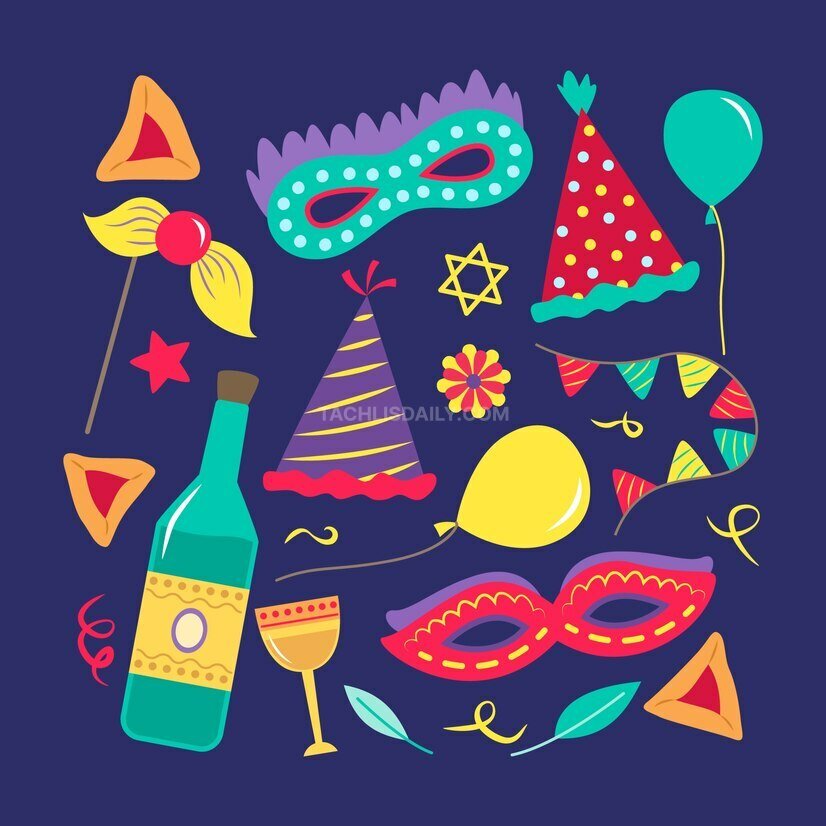The world is in a tailspin. Despite all of the progresses of the modern era – the advances in technology, humanities, and critical thinking; everything around us seems to be regressing at an alarming rate. An avalanche of bigotry and extremism is overwhelming ideals such as tolerance and justice. As recently as last week, a prominent political commentator was fired for liking an online post that commented “[Rabbi] Are you drunk on Christian blood,” the latest provocation in what is becoming a rapidly slippery slope towards old-fashioned medieval antisemitism.
Along with this decline of sanity, happiness on a micro level has also taken a plunge. For the first time ever, the U.S. tumbled below the top twenty countries ranked in the annual World Happiness Report. Taken in context with the landscape of America today that statistic doesn’t surprise, as confusion and darkness gain a steadily increasing foothold within the mainstream of society.
And the frum world is not immune to what goes on around us. Putting aside the general danger posed by antisemitism rearing its ugly head; in our relatively sheltered confines too, individuals struggle alone on islands of pain. While as a society, the frum world has proved remarkably resilient with innumerable lomdei Torah, chessed organizations, and explosive population growth (kn”h), there are cracks beneath that beautiful surface.
Along with growth comes challenges, issues that put our fortitude to test. Shidduchim, fertility, parnassah, illness, shalom bayis, chinuch – almost everyone struggles with one of the aforementioned burdens at some point or another. So many conversations involve the appellation of “nebach” as we sympathize with a fellow Jew’s plight.
It can seem so confusing. The heartrending situations that we are all witness to, threaten to tear our hearts apart. Questions arise and despair begins to settle in as we observe helplessly what seems to be yet another unsolvable situation.
And then Purim arrives. Mishechnas Adar Marbim B’simcha. We are instructed to be happy; to frolic and dance, to be joyful and make merry. How is this possible? Is this a mitzva that a person can only accomplish by drinking their troubles away? An explanation by Reb Elchonon Wasserman helps put rest to this conundrum.
Reb Elchonon explains that world events take place as a long, winding chain. No circumstance can be understood on its own; only when it is all linked together does everything fall into place. The story of Purim, he says, is a perfect example that brings forth this idea. No single event within the story points to Divine intervention, but when seen in its entirety there is no doubt as to the Hidden Hand that guided every aspect of the saga to its ultimate conclusion.
What Reb Elchonon is explaining is that Purim is more than just a Yom Tov that we celebrate once a year. In essence, it’s celebrating the life that we live as believing Jews. A life lived with the knowledge that there is something bigger than ourselves; that there is a Higher Plan, one that we are a part of – yet one in which we do not understand the role we play. Purim helps us understand that we don’t understand, while at the same time teaching us that a beautiful ending lies at the end of it all.
More than anyone else, Reb Elchonon would have known this. He lived and died with this realization, having been killed al kiddush Hashem together with his two sons in the Holocaust. To some his death might have seemed to be a horrific end, a demonstration of the world’s seeming injustice. However, as he himself explained right before his murder, his death wasn’t an ending. It was the middle chapter of a Heavenly Story. A story that is guaranteed to have a glorious conclusion.
One who reads the Megillah backwards does not fulfill their obligation of reading the Megillah (Mishnayos Megillah). In line with the above idea, a homiletical explanation is offered of this halacha. We all have a personal megillah to read. Our own, individual journeys that require faith to traverse safely. Jumping to the end while we are at the beginning or in the middle doesn’t count. We must go in order following the exact path that Hashem has set down for us.
Being joyful on Purim doesn’t necessitate drinking our troubles away; instead, we dance with them. We dance with the understanding that it is all for the good. We dance with the belief that the Yeshuah will arrive. And finally, we rejoice in our awesome fortune that as believing Jews we have the opportunity to live this way each and every day.
As Chavakuk Hanavi said, A tzadik will live with his faith. Purim comes along once a year, but its message is one that we live day in and day out.











